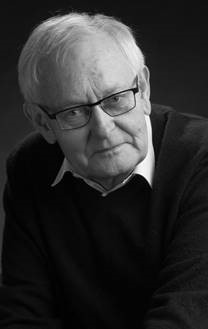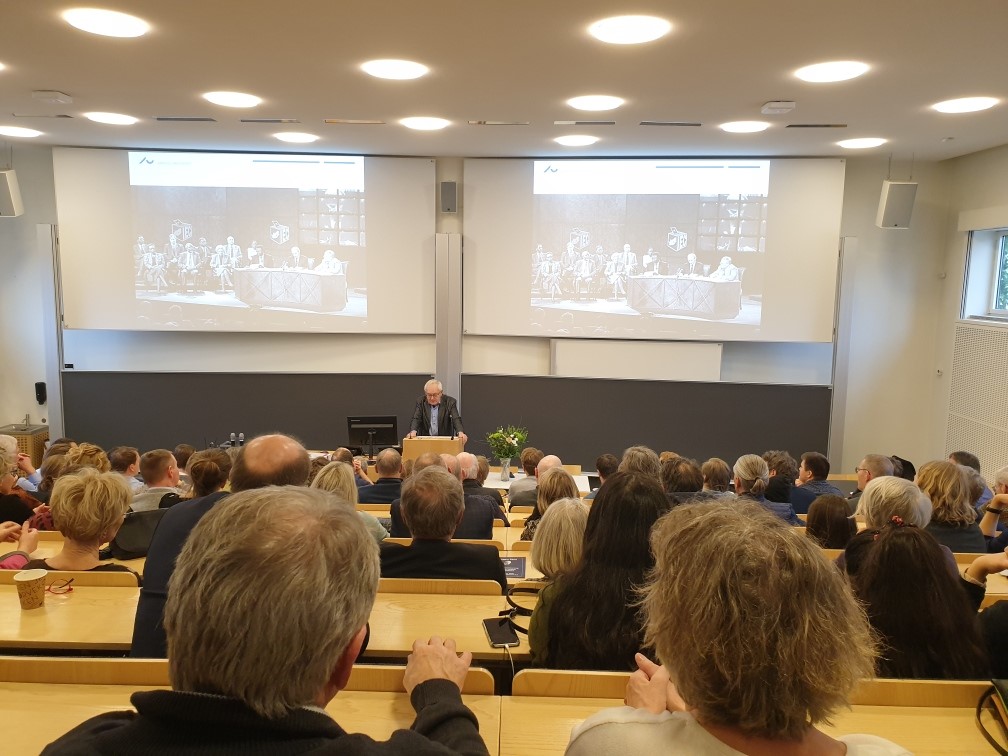You must seize the opportunities
On 31 January, professor and electoral expert Jørgen Elklit bids farewell to the Department of Political Science after 50 years. In this interview, he reflects on a long and productive career full of exciting experiences and on the great changes that have taken place at the university and the department.


fMany fine words have been written about Professor Jørgen Elklit, who is quite rightly described as one of the world’s leading experts on electoral systems and their practical implementation. In 1970, he joined the Department of Political Science as a young history student. On Friday 31 January, he will celebrate his 50th anniversary as the first academic staff member ever at Aarhus University.
On the same day, he will also retire after a long and productive career. Not only has Jørgen Elklit written and edited a long list of books and articles. Since 1990, he has also travelled the world as an electoral expert on new and conflict-ridden democracies. Here he looks back at the most important events in his career and at some of the changes that have taken place in the last 50 years.
What do you see as the greatest differences between AU 50 years ago and today?
AU as well as the department have changed a lot since 1970, but the change has been almost indiscernible. You don’t really notice it when you’re right in the middle of it. Back then, everything was much smaller - smaller year groups, fewer employees, more space in the Park. There was another sense of familiarity and we knew a lot more about each other. For example, the entire teaching staff at the department would meet up once a week to discuss the teaching and the state of the world over a cup of coffee and a piece of “Rungsted-tærte” (a traditional Danish pastry pie, ed.).
Nowadays, there are so many employees that it is difficult finding a room that accommodates all of us. I suppose we also have less in common than we did back then. Overall, the university now comprises bigger departments and faculties, and one might ask, where is the limit? Maybe we have reached it already?
When I started out, we didn’t give much thought to rankings either. In those days, our main concern was to find out how to transfer the academic development that was taking place internationally to a Danish context. And how to carve out a role for ourselves in this development. We had teaching to do, and we had to find a way to conduct research that would enable others to benefit from it. We never dreamt that 50 years on, the department - and the university - would hold such a strong position or be as internationally recognised as it is now.
Today, things are running smoothly and we have a lot of talented researchers – also from abroad. This had led to new considerations that we didn’t have before. For example, when do we speak Danish and when do we speak English - and how do we actually get to know all our new colleagues?
What has been the greatest experience in your career?
That has to be in 1994 when I was co-responsible for organising the election in South Africa, which marked the transition from apartheid to democracy. I was also responsible for announcing the result of the election, which we in the electoral commission had managed to execute extremely expediently. That was a great moment - emotionally as well. All in all, I’ve really enjoyed being able to use my knowledge in practice in many different places - and to try to make a real difference in many parts of the world.
It’s been a great privilege to work at the Department of Political Science, which has always been a terrific department. We’re all good colleagues, who help and respect each other across academic fields and professional levels. In addition, there’s always been a great relationship between the academic and the technical/administrative staff. That allows for a well-functioning department and - I believe - makes it a very special place to work.
What are your best pieces of advice for young researchers across Aarhus BSS?
Naturally it is important that you cultivate and develop your academic skills and knowledge, but you should also be open to what is going on in society so that your research becomes applicable and contributes to society.
It is also important that you have a strong network outside the university and that you seize the opportunities that arise.My first task as an electoral adviser in Nepal in 1990 was the result of a telephone call made to the department by an employee from the Ministry of Foreign Affairs of Denmark. He was a former student at the department and had also worked here for short time. To me, that telephone call marked the beginning of a long and exciting career as an electoral expert all over the world.
However, my most important piece of advice is that you have to remember to be a good and decent colleague, even though you are also competitors in a way. You should always keep a civil tone and take genuine pleasure in each other’s successes. They benefit all of us.
What do you look forward to the most now that you are retiring?
First and foremost, I’ll continue to write and edit books and complete the research projects I’m involved in. I probably won’t be able to keep out of the public debate. Right now, I’m involved in the discussion of Swedish electoral system, which is somewhat different - and for one thing, much less secret - than the Danish system. In other words, I still have plans and ideas.
I also look forward to exploring Sweden, where I’ve now lived for a couple of years. Otherwise, I’ve travelled all over the world and there aren’t that many places I haven’t visited. That is, I’ve never been to the island of Anholt, so maybe that’s where I should go next?
Four facts about Jørgen Elklit
- He holds a Master’s degree in history and was awarded the university's gold medal at the age of 28 for his study of the 1845 census.
- He has travelled the world as an adviser on elections and electoral systems in new and conflict-ridden democracies such as Nepal, South Africa, Afghanistan, Bosnia-Herzegovina, Lesotho, Kenya, Mauritius, China, Iraq and Mongolia – and Denmark.
- In 1994, he was a member of South Africa’s Independent Electoral Commission and was partly responsible for the election, which marked the transition from apartheid to democracy.
- He currently lives in Sweden together with literary researcher and former member of the Swedish parliament, Birgitta Wistrand.
Would you like to know more about Jørgen Elklit?
- If you would like to hear more about Jørgen Elklit’s fascinating experiences as an international adviser and electoral expert, we recommend the podcast ‘Verdensmestre i valg’ (World Champions in Elections) (in Danish) or the book on elections in Aarhus University’s Reflection series (in Danish).
- Jørgen Elklit’s CV is also available on his personal website